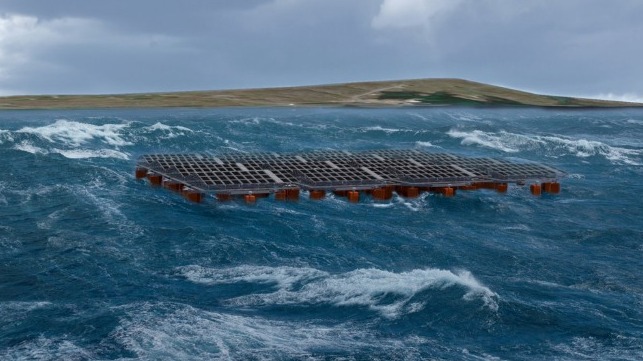Testing Concepts for Floating Offshore Solar Power Production

A unique test is getting underway exploring the potential of floating offshore solar panels as the latest contributor in the search for new renewable energy sources. Norwegian energy company Equinor, which has already expanded into offshore wind, is collaborating with a developmental energy company, Moss Maritime, to test the solar technology including in the harsh Norwegian environment.
“We have been working on this concept for the past three years, most recently through our partnership with Equinor,” says Alexander Thøgersen, vice president, engineering, at Moss Maritime. “The concept has been substantially matured, both technically and economically. The floating pilot plant will be an important step on the road towards technology commercialization and an important arena for further development and optimization of the concept.”
The upcoming test, expected to launch in the late summer of 2021, is set to be the world’s first pilot plant for floating solar power in rough waters. The plan is to build a floating plant measuring approximately 260 feet squared and sitting less than 10 feet over the sea surface near Trondheim, Norway. The purpose of the pilot plant is not primarily to see how much energy it can produce, but how the weather conditions affect the plant. According to the partners, the Norwegian coast and continental shelf are world-class when it comes to oil, gas, and wind, but when it comes to sun, other regions offer better conditions.
“If we succeed here, we can succeed anywhere,” says Hanne Wigum. She is the head of the Equinor technology unit focusing on wind and solar power.
Equinor has filed an application with the Norwegian Water Resources and Energy Directorate calling for a test to last a minimum of one year.
This project will be the third that Equinor is involved in each exploring different aspects of the technology. In a pilot project located off Sri Lanka, they are exploring the levels of production using the calm water environment. In a project in the Netherlands, three different floating solar power concepts are being tested on a lake. The goal is to gain data about the resilience and predictability of production under rougher conditions than in other current production sites for floating solar power.
“We choose to perform several research projects in parallel because of the rapid growth within renewable energy,” says Wigum. “This enables us to acquire optimal knowledge about this as early as possible.”

that matters most
Get the latest maritime news delivered to your inbox daily.
Equinor notes that it has not made any decision on the production of power from floating photovoltaic panels, besides the research projects. Using its researchers it plans to continue to evaluate the potential applications for the technology.
